Podcast: Play in new window | Download
Subscribe: Apple Podcasts | Podcast Index | RSS | More
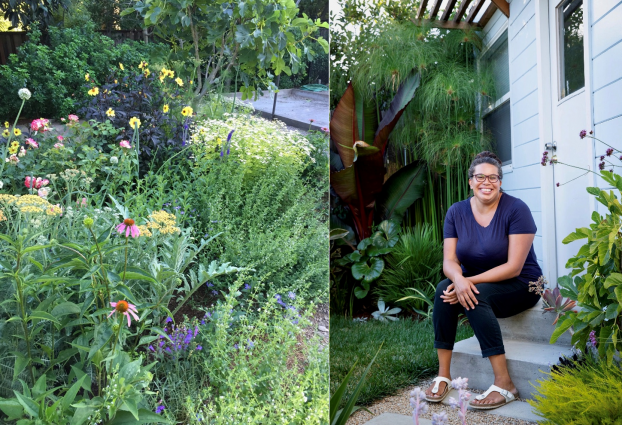
(c) Rachel Weill
Today’s special guest returns to the Slow Flowers Podcast after her 2017 appearance. Leslie Bennett is an award-winning garden creator whose Pine House Edible Gardens designs and installs beautiful, productive edible landscapes that provide bountiful harvests of organic fruits, vegetables, cutting flowers and herbs — and that create space for more beauty, peace and connection in clients’ lives. Pine House also maintain gardens, harvests and processes garden-grown food, and teaches clients the skills to do it themselves.
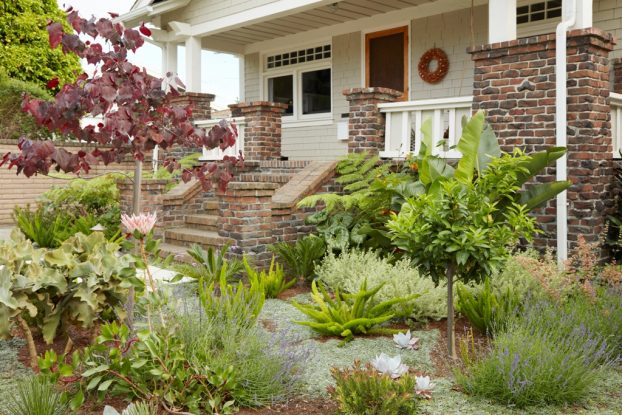
As a Black woman owned business and multi-racial, queer inclusive, majority female team, Pine House Edible Gardens stands for more than just healthy food and beautiful landscapes, and this is one reason I invited Leslie back to the show — to discuss her firm’s commitment to making gardens accessible to all through its equity pricing program and the Black Sanctuary Gardens project. As Leslie writes on the company’s web site: “We believe an edible garden can be a transformative space to grow and practice the better ways and world we want for ourselves and for our communities.”
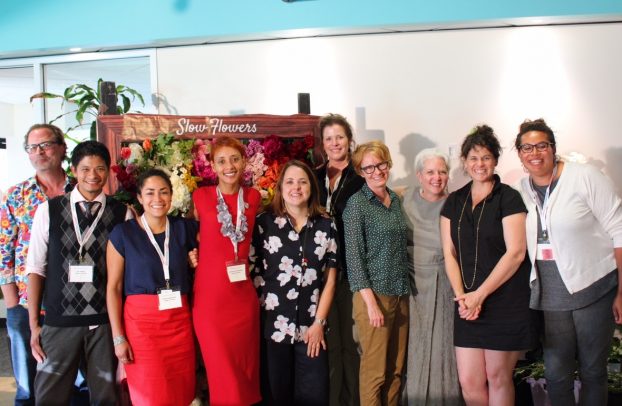
In 2017, Leslie joined the first Slow Flowers Summit in Seattle as a speaker on the topic of inclusion and representation in floriculture and horticulture. She is definitely a mentor of mine as I strive to make the Slow Flowers community an inclusive, supportive and accessible place for Black flower farmers and Black floral professionals.
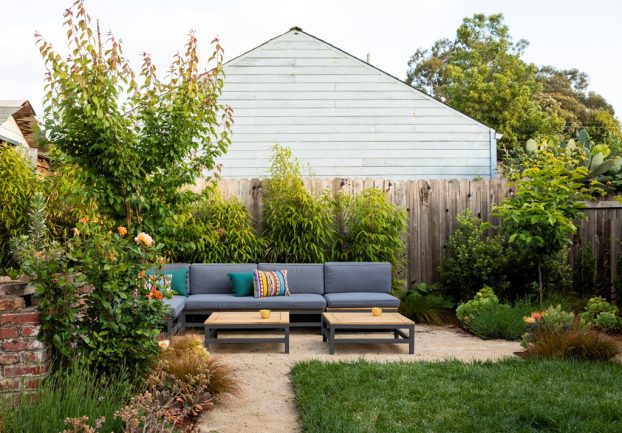
(c) Rachel Weill
Slow Flowers has had the privilege of sharing our resources to support anti-racist programs and to support new members through our Professional Development Fund for Black Farmers and Florists. One of the programs we were moved to support financially is the Black Sanctuary Gardens program that Leslie began a few years ago through Pine House Edible Gardens. I wanted you to learn more about this program because I believe it is a model that anyone who wants their creative enterprise to be guided by values- and mission-. As I watch how Leslie uses her talents and resources to support her beliefs, it inspires me to want to do the same with Slow Flowers.
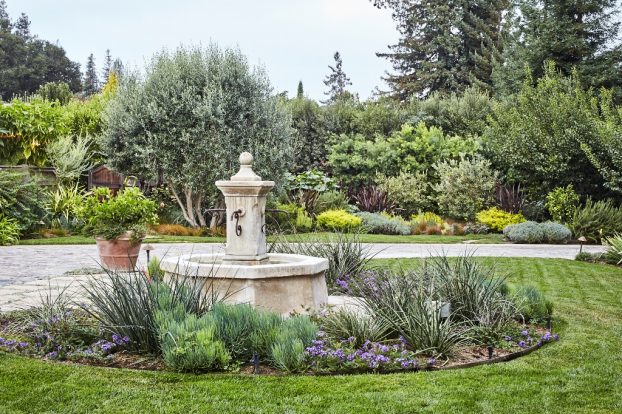
Thanks so much for joining my conversations with Leslie — our most recent one and the replay of Episode 302.
One thing Leslie said that struck me so powerfully and it needs to be restated: This is not charity. This is giving back what has been taken. Land, generational wealth, historic and systemic racism. Operating very humbly will take us forward.
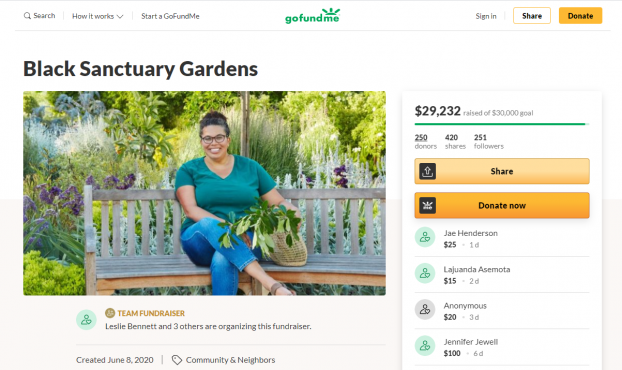
The current Go Fund Me Campaign for Black Sanctuary Gardens is close to reaching its 2020 campaign goal of $30,000, but the fundraising continues because this will be an ongoing design/installation series. You can read more about Black Sanctuary Gardens at Pine House Edible Gardens’ web site, but I’d like to highlight a few details. Leslie writes:
“Inspired in part by Alice Walker’s naming of the garden as a site for black women’s spirituality, creativity and artistic work, landscape designer Leslie Bennett and her team work to design, install and care for a series of low to no-cost Black Sanctuary Gardens for Black women and Black communities. Visual curation and photographic documentation of the women and communities in their garden spaces is a secondary, integral part of the project as we create imagery that more accurately and inclusively reflects the relationship of Black women and communities with their gardens.“
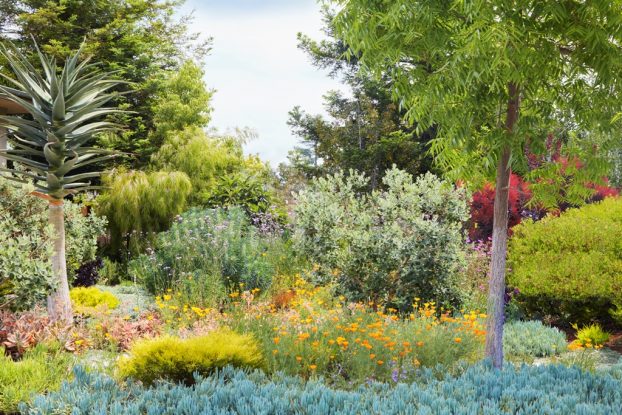
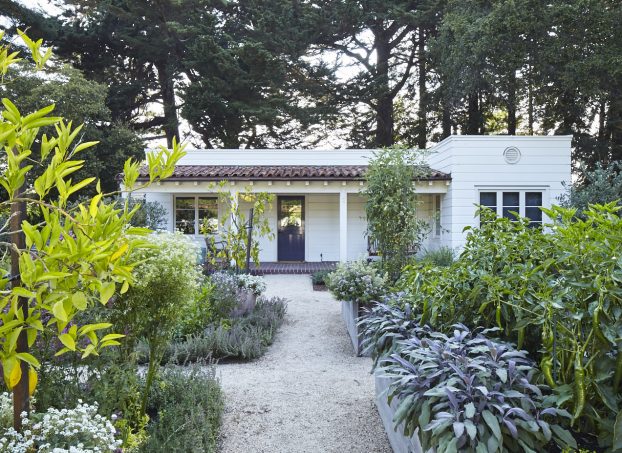
The primary goal of Black Sanctuary Gardens is to create garden spaces for Black women to rest and be restored. This space is so needed, given the racism and sexism that Black women experience as part of daily American life. A further goal is to define, uphold and celebrate Black community spaces, amidst gentrification and displacement of historically Black communities in Oakland.
Black Sanctuary Gardens is an exciting opportunity to develop gardens that are reflective of our brilliant Black community and supportive of our specific cultural experiences, while offering real sanctuary for Black people to commune, converse, collaborate, heal, rest, and be nourished.
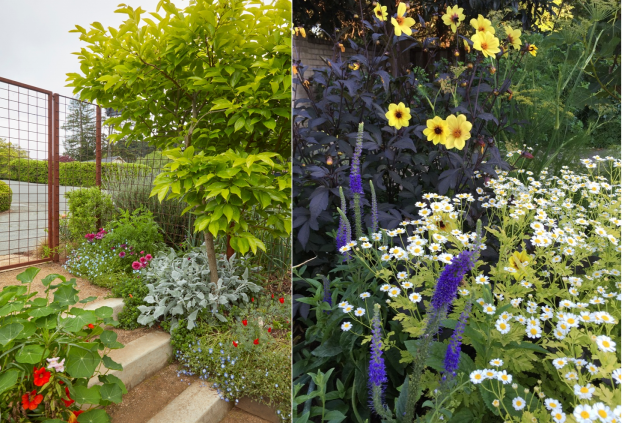
After we recorded today’s interview, Leslie and I continued to discuss the many important reasons for centering a business around Black wellness, creativity and community. It has inspired me to find words to state the importance of these values in the Slow Flowers movement. While I’m proud that our stated Manifesto values sustainability, local sourcing of flowers, and supporting family farms, I realize I want to more explicitly and actively support equity in our Black farming and floristry community. Look for an update to the Slow Flowers Manifesto in the coming days — as we put values and beliefs into words.
Here’s how you can find and follow Leslie Bennett and Pine House Edible Gardens:
Pine House Edible Gardens on Facebook
Pine House Edible Gardens on Instagram
More about Black Sanctuary Gardens

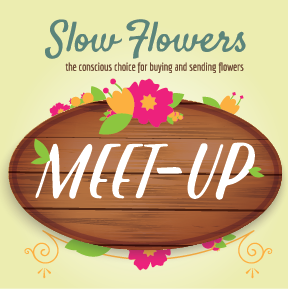
Now, more than ever, your Slow Flowers Membership gives you an important story to share with your community and your customers.
Our monthly Slow Flowers Meet-Ups continue this Friday on August 14th (9 am PT/Noon ET) and you’re invited to join us – virtually – via Zoom.
If you missed last month’s Meet-Up, you can find video from our July 10th Slow Flowers Member Virtual Meet-Up with featured guests wedding designer and stylist Joy Proctor, founder and creative director of Joy Proctor Design and Slow Flowers members and wedding and event designers Adam Rico and Alicia Rico of Dallas-based Bows and Arrows Flowers. Learn about the first @saytheirnamesmemorial in Portland, Oregon, installed on Juneteenth (June 19th) by Joy and a group of friends, artists, designers and craftspeople, and created in several other cities including Dallas and Atlanta by Bows and Arrows Flowers.
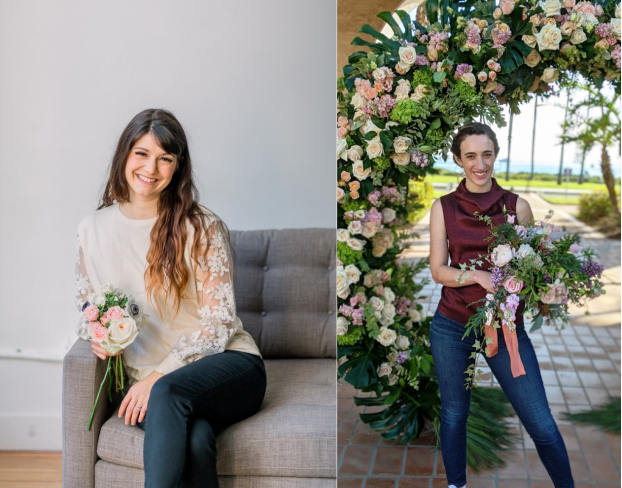
This week’s guests include Gina Thresher of From the Ground Up Floral and Tonneli Gruetter of Salty Acres Farm — they’re among the instructors in a new virtual floral conference taking place in late August called Fleurvana Virtual Summit. You’ll hear more from Gina and Tonneli and learn how you can grab a free registration for the four-day conference August 23-26 — I’ll be speaking at Fleurvana, too. You’re invited to join us on Friday!

The Slow Flowers Podcast has been downloaded more than 632,000 times by listeners like you. Thank you for listening, commenting and sharing – it means so much.
As our movement gains more supporters and more passionate participants who believe in the importance of the American cut flower industry, the momentum is contagious. I know you feel it, too. I value your support and invite you to show your thanks and with a donation to support my ongoing advocacy, education and outreach activities. You can find the donate button in the column to the right.
Thank you to our Sponsors!
This podcast is brought to you by Slowflowers.com, the free, nationwide online directory to florists, shops, and studios who design with American-grown flowers and to the farms that grow those blooms. It’s the conscious choice for buying and sending flowers.
And thank you to Florists’ Review magazine. I’m delighted to serve as Contributing Editor for Slow Flowers Journal, found in the pages of Florists’ Review. Read our stories at slowflowersjournal.com.
Association of Specialty Cut Flower Growers. Formed in 1988, ASCFG was created to educate, unite, and support commercial cut flower growers. It mission is to help growers produce high-quality floral material, and to foster and promote the local availability of that product. Learn more at ascfg.org.
Longfield Gardens, which provides home gardeners with high quality flower bulbs and perennials. Their online store offers plants for every region and every season, from tulips and daffodils to dahlias, caladiums and amaryllis. Check out the full catalog at Longfield Gardens at longfield-gardens.com.
Rooted Farmers works exclusively with local growers to put the highest-quality specialty cut flowers in floral customers’ hands. When you partner with Rooted Farmers, you are investing in your community, and you can expect a commitment to excellence in return. Learn more at RootedFarmers.com.
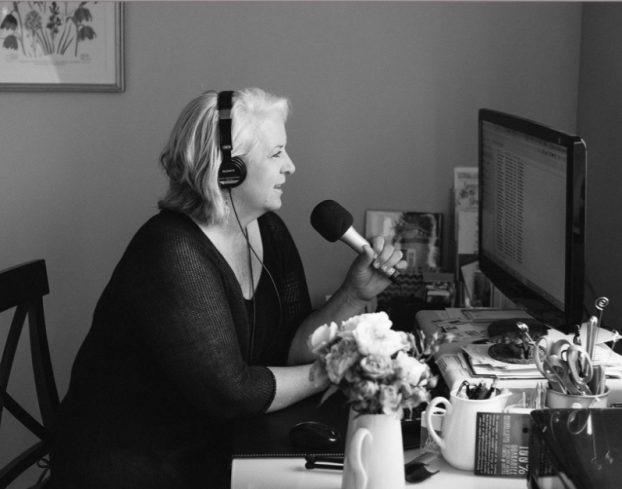
I’m Debra Prinzing, host and producer of the Slow Flowers Podcast. Next week, you’re invited to join me in putting more American grown flowers on the table, one vase at a time. And If you like what you hear, please consider logging onto iTunes and posting a listener review.
The content and opinions expressed here are either mine alone or those of my guests alone, independent of any podcast sponsor or other person, company or organization.
The Slow Flowers Podcast is engineered and edited by Andrew Brenlan. Learn more about his work at soundbodymovement.com.
Music Credits:
Homegrown; Turning on the Lights; Gaena
by Blue Dot Sessions
http://www.sessions.blue
Lovely by Tryad
http://tryad.bandcamp.com/album/instrumentals
http://creativecommons.org/licenses/by-sa/3.0/
In The Field
audionautix.com








